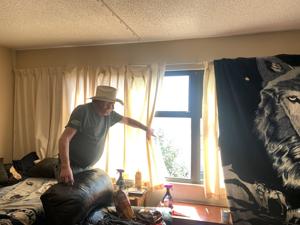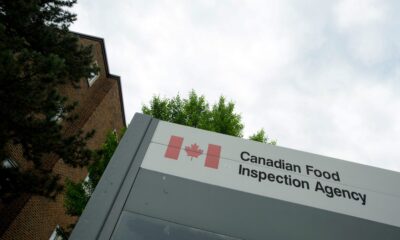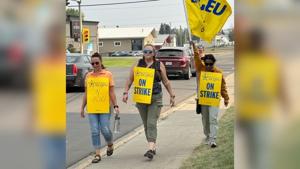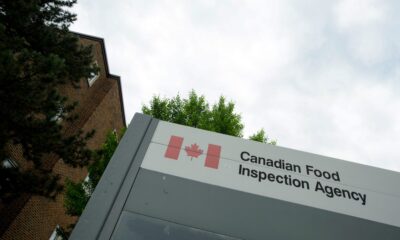Top Stories
Hundreds Remain Vulnerable to Heat After B.C. Promises Failed

UPDATE: Four years after the devastating heat dome in British Columbia that claimed over 618 lives, many vulnerable residents remain at risk as the province’s promised relief measures have stalled. Despite the alarming statistics and urgent calls for action, the situation for seniors like Tracey McKinlay has not improved.
New reports confirm that extreme heat continues to be a “silent killer” in B.C., particularly affecting those aged 60 and older. McKinlay, who lived alone in a poorly insulated apartment without air conditioning, tragically succumbed to the heat in June 2021. Her case has become emblematic of a larger, systemic failure to protect vulnerable populations.
The extreme heat events in B.C. are projected to escalate, with forecasts suggesting that by 2030, heat-related deaths could exceed 1,300 annually, resulting in significant hospitalizations and expenses. This alarming trend has prompted increased scrutiny of the province’s response to climate threats.
Authorities initially pledged $30 million to provide air conditioners for low-income residents. However, the rollout of this program has been plagued with delays and accessibility issues. As of now, only about 27,500 units have been distributed, despite high demand. Many applicants face barriers, such as the requirement for a BC Hydro account, which is often unavailable to renters in subsidized housing.
In addition, the provincial Building Code updates only apply to new constructions, leaving many older buildings—like the Legion Manor where McKinlay lived—without essential cooling provisions. Municipalities have attempted to propose maximum indoor temperature laws to protect residents in older buildings, but efforts have largely failed.
Critics, including tenant advocates and health officials, argue that the government’s response has been insufficient. Ryan Ness of the Canadian Climate Institute stated, “B.C. has had to play catch-up incredibly fast… but in terms of adapting and preventing things from getting to a crisis point, there’s still a lot that needs to be done.”
While cooling centers have been established across more than 60 communities in B.C., their effectiveness remains limited. Many vulnerable individuals lack transportation or face mobility challenges, making it difficult to access these resources during heat waves. A 2024 study highlighted that older adults are often unaware of available cooling centers, mistaking them for shelters intended for the homeless.
In a recent visit to Legion Manor, the top-floor rec room designated as a cooling space was empty, with heat-blocking curtains still in storage. As community leaders push for stronger regulations, the lack of immediate action raises concerns about the safety of those most at risk.
Local Councillor Nadine Nakagawa has emphasized the urgent need for legislative changes, stating, “People are struggling to find ways to protect themselves from the heat.” There’s a growing push for bylaws that would mandate maximum indoor temperatures during extreme weather events.
The urgency of this issue is underscored by the emotional toll it has taken on families like McKinlay’s. Her sister, Jeanne Hansen, expressed deep regret about not being able to provide adequate support. “Had I known, we would’ve picked her up and taken her somewhere safe,” Hansen lamented.
As the province navigates these challenges, residents and advocates continue to call for immediate and effective solutions to ensure that no one suffers the devastating consequences of extreme heat again. The stakes are high, and without swift action, the tragic loss of life could continue.
Residents and community advocates are encouraged to stay informed about available resources and support systems while calling for more effective measures to safeguard against future heat events.
-

 World3 months ago
World3 months agoScientists Unearth Ancient Antarctic Ice to Unlock Climate Secrets
-

 Entertainment3 months ago
Entertainment3 months agoTrump and McCormick to Announce $70 Billion Energy Investments
-

 Science3 months ago
Science3 months agoFour Astronauts Return to Earth After International Space Station Mission
-

 Lifestyle3 months ago
Lifestyle3 months agoTransLink Launches Food Truck Program to Boost Revenue in Vancouver
-

 Technology2 months ago
Technology2 months agoApple Notes Enhances Functionality with Markdown Support in macOS 26
-

 Top Stories1 week ago
Top Stories1 week agoUrgent Update: Fatal Crash on Highway 99 Claims Life of Pitt Meadows Man
-

 Sports3 months ago
Sports3 months agoSearch Underway for Missing Hunter Amid Hokkaido Bear Emergency
-

 Politics2 months ago
Politics2 months agoUkrainian Tennis Star Elina Svitolina Faces Death Threats Online
-

 Technology3 months ago
Technology3 months agoFrosthaven Launches Early Access on July 31, 2025
-

 Politics3 months ago
Politics3 months agoCarney Engages First Nations Leaders at Development Law Summit
-

 Entertainment3 months ago
Entertainment3 months agoCalgary Theatre Troupe Revives Magic at Winnipeg Fringe Festival
-

 Politics1 week ago
Politics1 week agoShutdown Reflects Democratic Struggles Amid Economic Concerns





















